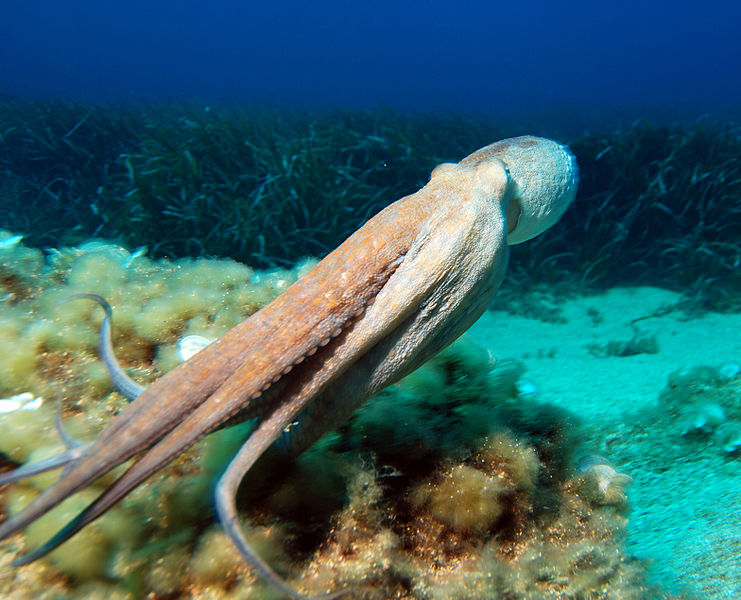Please note: Osher Rainforest will be closed for maintenance Jan. 14–16.
Science News
Shhh... Cephalopod Crossing
April 14, 2011

Noise pollution in the oceans has been shown to cause physical and behavioral changes in marine life, especially in dolphins and whales, which rely on sound for daily activities. According to a new paper, other marine life is affected—cephalopods.
Cephalopods are charismatic creatures that include octopuses, squid and cuttlefish. In 2001 and 2003 several squid washed up along the Spanish coast, while ships were prospecting for oil and gas using airguns.
Michel André, of the Technical University of Catalonia in Barcelona, wondered if the noise might be the cause of the deaths so he went to the lab. And the results confirmed his suspicions. From New Scientist:
[The] experiments on squid, cuttlefish and octopuses show that their balancing organs are so badly damaged by sound similar to submarine noise pollution that they become practically immobile. The consequences seem permanent.
“We know that noise pollution in the oceans has a significant impact on dolphins and whales because of the vital use of acoustic information of these species,” said André, “but this is the first study indicating a severe impact on invertebrates, an extended group of marine species that are not known to rely on sound for living. It left us with several questions: Is noise pollution capable of impacting the entire web of ocean life? What other effects is noise having on marine life, beyond damage to auditory reception systems? And just how widespread and invasive is sound pollution in the marine environment?”
With the increase in offshore drilling, cargo ship transportation, excavation and other large-scale, offshore activities, it is becoming more likely that these activities will overlap with migratory routes and areas frequented by marine life. The problem isn’t going away, according to Discover’s 80beats:
Noise pollution in the ocean has been acknowledged as a problem for years, but there haven’t been many changes in policy; the Supreme Court has ruled that the Navy could continue its sonar exercises despite the fact that its sonar was shown to damage dolphins’ hearing.
Image by albert kok/Wikimedia